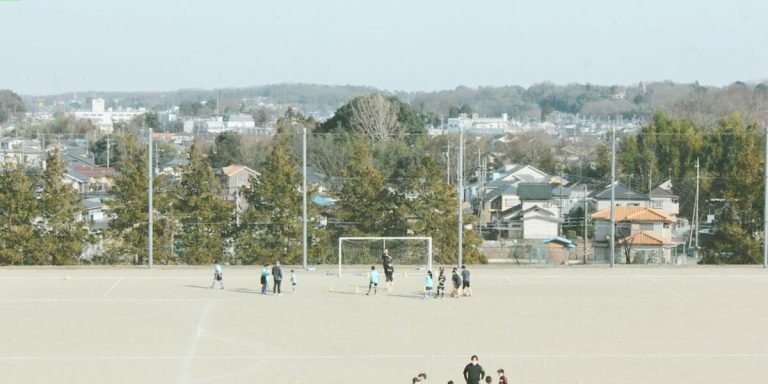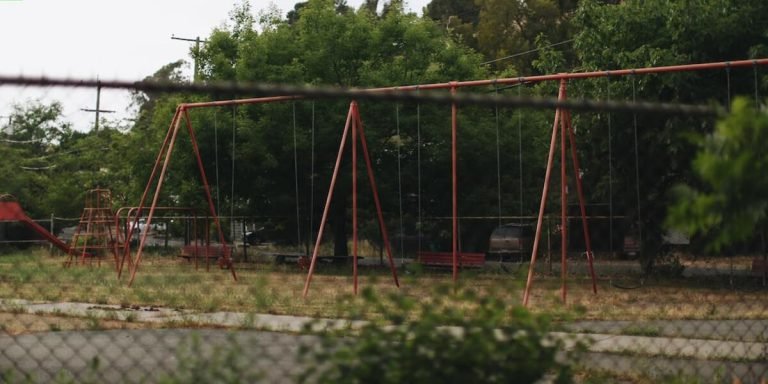Kindergarten Science Experiments: Creating a Love for Learning.
Introducing your little ones to kindergarten science experiments can be a wonderful milestone in cultivating their love for learning. Science isn’t just about complicated theories and complex equations; it’s also an incredibly exciting way of understanding the world around us, especially when approached through hands-on activities.
Kindergarten is often where our tiny scholars have their first experience with Activity-Based Learning (ABL). This engaging approach draws children in by making education interactive – they learn by doing rather than seeing or hearing alone. Kindergarten science experiments that employ ABL are brilliant tools to foster curiosity, creativity, critical thinking skills and lay the foundations of scientific literacy early on.
Did you know?
Did you know that through simple Kindergarten science experiments like growing plants from seeds, children can not only learn about plant life cycles but also develop critical thinking and problem-solving skills? This hands-on approach to learning often leads to improved academic performance.
How Kindergarten Science Experiments Enhance Activity-Based Learning
In today’s world, where technology integration in education has become more significant than ever before, kindergarten science experiments play a pivotal role. These hands-on activities foster activity-based learning, promoting an engaging and immersive environment for young minds to explore scientific concepts.
As we delve into the realm of integrating kindergarten science experiments with technology in 2023, it becomes clear that this fusion offers multiple benefits. Combining these two essential parts of modern education can enhance children’s understanding and experience substantially. It encourages youngsters to be active rather than passive learners by involving them directly in their own discovery process which makes learning exciting instead of mundane.
The beauty lies within the bond between curiosity-driven kindergarteners and interactive science experiments- it allows them to comprehend abstract ideas through concrete experiences effectively. By leveraging cutting-edge technological tools during these early stages of childhood education facilitates not only cognitive development but also fosters creativity innovation among students from a tender age.
The Role of Experimentation in Child Development
Experimentation plays a fundamental role in child development, especially in the context of kindergarten science experiments. Specifically looking at these early-years learning activities, they can essentially create an interactive and engaging environment that fosters children’s cognitive growth.
Integrating technology with playful experimentation offers a seamless way to stimulate young learners’ curiosity about their surrounding world. As we move forward into 2023, more educators are recognizing the significant impact of this approach on activity-based learning.
Incorporating thrilling tech-infused kindergarten science experiments encourages youngsters to think critically and analytically by exploring various concepts hands-on. For instance; growing plants indoors using LED Lights allows them not only to understand plant biology but also introduces basic technological knowledge regarding LEDs usage effectively sparking interest towards both botany and electronics simultaneously.
A host of virtual reality (VR) tools have sprung up as integral parts for conducting exciting scientific explorations too. Kindergartners get immersed within virtually constructed environments replicating real-life scenarios such as underwater ecosystems or planets beyond our own! This boosts observational skills while instilling zest for cosmology or marine biology through VR-supported kindergarten science experiments!
Furthermore, coding has become increasingly incorporated into curriculum considering its profound influence on developing logical thinking abilities from an early age onward! Coding toys like ‘Code-a-pillars’ facilitate kids’ understanding software mechanics thoroughly yet amusingly promoting deeper comprehension via experimental play!!
Cultivating Curiosity and Critical Thinking with Simple Projects
Engaging children in kindergarten science experiments is a fantastic way to encourage their natural curiosity and develop critical thinking skills. These simple projects, designed for young hands and minds, not only make learning fun but also pave the path towards an activity-based curriculum.
Children are inherently curious about their surroundings. By providing them with age-appropriate scientific explorations, we can facilitate better understanding of concepts while feeding this thirst for knowledge. Science forms the basis of many everyday phenomena – from changing weather patterns to growth of plants.
Incorporating technology into these experiences takes it up a notch by giving youngsters hands-on exposure to tools that will form part-and-parcel of their life as they grow up. Picture interactive augmented reality applications where kids can observe how rainfall occurs or coding games that introduce them to basic computer instruction through puzzles!
Kindergarten science experiments inspire students’ thought processes as they begin questioning ‘why’s behind every phenomenon leading toward fostering logical reasoning abilities early on—essential 21st-century skillset key in preparing future-ready citizens.
Integrating Hands-On Experiments into the Kindergarten Curriculum
The world is rapidly evolving with technology at its forefront, making it imperative that we start inculcating necessary tech skills right from the earliest stage of education. The kindergarten classes represent one such formative phase where simple yet exciting science experiments can be easily integrated into the curriculum.
Incorporating hands-on learning experiences through interactive technological tools not only enriches a child’s comprehension but also fosters their curiosity and creativity. Kindergarten teachers are increasingly leveraging this approach to create an immersive experience for youngsters around STEM subjects – Science, Technology, Engineering, Mathematics.
Also known as Activity-Based Learning (ABL), this method of integrating practical applications via small-scale science experiments helps transform conventional teaching methodologies by involving young minds actively. Incorporating fascinating computer programs or virtual reality systems brings theoretical concepts to life while encouraging independent problem-solving abilities among children.
Imagine your kindergarteners providing solutions to real-world problems using 3D printers or creating beautiful art pieces on digital canvases? That’s exactly what ABL aims for – paving a path towards comprehensive skill development which will serve them well as they navigate further in our technologically driven society come 2023 and beyond.
Advantages of a Practical Approach to Early Education
One significant advantage is that it instills the love of learning at an early age. When kids are involved in hands-on activities, their curiosity gets ignited – they become active participants rather than passive listeners.
Another benefit lies with adaptability; each child learns differently, some may excel at visual or auditory learning while others might learn better through kinesthetic methods which involve movement and touch.
Thirdly, such an interactive educational environment promotes creativity among children. Practical exercises provide them unlimited opportunities to experiment freely within set boundaries stimulating ingenuity.
Furthermore, driving home complex scientific theories becomes effortless when translated into simple doable actions which seedlings find interesting as well as exciting thus making this method potentially effective from students’ perspective too.
Lastly but very crucially in today’s digital era (2023), activity-based learning forms a strong foundation for understanding technology integration later on during advanced stages of schooling thereby ensuring our next generation is not just digitally literified but also equipped to leverage its power effectively towards problem-solving leading us toward brighter future prospects full circle!
In conclusion then: integrating hands-on experiences specifically designed as ‘kindergarten science experiments,’ harnesses benefits directly cumulatively contributing towards positively impacting childhood education overall by way of paving path clear ahead prepped-up ready awaiting discovery exploration further still!
Aligning Educational Standards with Interactive Learning
Understanding the importance of interactive learning in kindergarten is paramount. Activity-based learning, especially through hands-on science experiments, plays a significant role. Today’s focus on technology integration in education has amplified its significance.
Educators widely recognize the advantages of integrating educational standards with interactive learning, especially through science experiments in kindergarten. Key benefits include:
1. Improved Cognitive Skills: Incorporating activity-based learning into curriculum strengthens cognitive skills for kindergarteners. This enhances kids’ analytical thinking and problem-solving capabilities.
2. Enhanced Interest and Engagement: Kindergarten science experiments can make concepts tangible and relatable for children, enhancing their interest and engagement levels compared to conventional teaching methods.
3.Maximum Application of Technology Integration: Using digital media or simple coding exercises while simulating mini-labs makes your classroom tech-savvy without substituting fundamental scientific principles – an outstanding exercise at integrating STEM (Science, Technology, Engineering & Mathematics) right from tender years!
4.Increased Creativity and Imagination: Such activities nurture creativity amongst students as they learn by doing tasks themselves rather than being passive consumers of information it also helps achieve new heights when it comes to practical application skills.
By effectively blending these experimental methodologies within our existing curricula framework we ensure teaching beyond textbooks yet meeting all set benchmarks seamlessly!
Evaluating the Impact of Kinesthetic Science Activities on Young Learners
Drawing upon the magic of kindergarten science experiments, educators are now embracing a more kinetic approach to teaching. This shift is seeing classrooms transformed into dynamic spaces where young pupils experience hands-on tasks that amplify their learning process. It’s no longer about just hearing and seeing; it’s also about touching, feeling, doing and moving – all elements integral in facilitating robust interactions with scientific concepts.
Kinesthetic activities have an incredible impact on children’s understanding of subjects like Science because they encourage engagement at multiple cognitive levels while fostering physical movement as well. Consider for instance a child involved in growing seeds indoors or creating whirlpools in bottles – such immersive experiences offer not only theoretical knowledge but instill practical wisdom too.
Moreover, technology integration is playing its part to revolutionize activity-based learning further. Teachers leverage smart devices along with digital apps which make playful Kindergarten science experiments even more interactive yet straightforwardly comprehensible for these youngsters within our brightly colored 2023 classroom settings.
By blending traditional methods with new-age resources we can successfully hone scientific curiosity among kindergarteners today – preparing them optimally while opening doors towards intuitive thinking and collaborative problem-solving skills essential tomorrow.
Assessing Cognitive Gains Through Structured Play
Structured play, particularly in the form of kindergarten science experiments, holds a unique position in early childhood education. These kinesthetic activities encourage young learners to explore and understand their natural environment while developing critical cognitive skills.
When children engage in hands-on learning experiences such as these innovative science experiments, they actively acquire knowledge by doing rather than passive listening or observing. This process is referred to as activity-based learning (ABL), an effective methodology aligned with 2023’s educational trends favoring interactive and immersive teaching techniques.
Kindergarten science experiments are more than just fun-filled tasks; they are tools for evaluating cognitive gains amongst young learners. As kids observe cause-effect relationships, predict outcomes and experiment with solutions during ABL sessions – it strengthens reasoning abilities and problem-solving skillsets that feed into academic performance later on.
Let’s take an example – considering something like ‘rainbow milk’ experiment wherein food coloring added to milk moves around when touched with soap-dipped cotton swabs. Simple yet powerful! Youngsters learn about color mixing first-hand but also foster creativity thanks to open-ended results from different swirling patterns formed each time.
In essence, assessing cognition through structured plays uncovers youngsters’ understanding levels better than traditional assessments could ever do so alone. It helps educators identify the areas where students may need extra help or advanced challenges.
Technology integration further enriches this experiential learning journey by adding layers of interactivity- think AR/VR platforms bringing life cycle diagrams alive right before tiny curious eyes!
Encouraging Long-Term Academic Interest with Engaging Scientific Inquiry
In the realm of early childhood education, there is a growing emphasis on integrating technology and activity-based learning. A prime example of this can be found in kindergarten science experiments that incorporate kinesthetic activities designed to encourage long-term academic interest through engaging scientific inquiry.
Kinesthetic science activities are more than mere hands-on experiences or demonstrations. They actively engage youngsters’ minds and bodies in exploring and understanding scientific concepts, immersing them fully into investigative processes from hypothesis formation right up to drawing conclusions.
Kindergarten teachers implementing such experiments find their classrooms transformed into dynamic labs where students dive deep into topics like magnetism, germination, weather changes – all while using technological tools appropriate for their age group. Activities could range from visually tracking plant growth on tablet computers to creating basic electrical circuits with kid-friendly circuit-building kits.
The unique benefit here lies not just in acquiring theoretical knowledge but also gaining practical insights. These robust learning experiences help foster curiosity about the world around us—promoting an active pursuit of knowledge rather than passive absorption—a fundamental shift bringing enormous benefits as children progress academically.
Moreover, we see children developing critical thinking skills earlier by observing cause-and-effect relationships during these experimental inquiries—an essential ability equipping learners for future problem-solving situations across disciplines—not limited solely within the realms of science but expanding over math, social studies etcetera.
Conclusion
In conclusion, kindergarten science experiments are more than just about creating fun messes and exciting reactions. They serve as a pivotal stepping stone in instilling a lifelong love for learning within our little scholars. These hands-on activities foster curiosity, stimulate creativity and ignite the thrill of discovery among young minds – qualities that will benefit them far beyond their early academic years.
Stepping out from this world of bubbling potions and homemade lava lamps, we urge you to dive into other resources on our website. We offer an array of information tailored towards education at different stages with real-world implications intended for both parents and educators alike. So why limit your knowledge enhancement?
Stay around longer; there’s so much more enlightenment awaiting right here on our platform.







